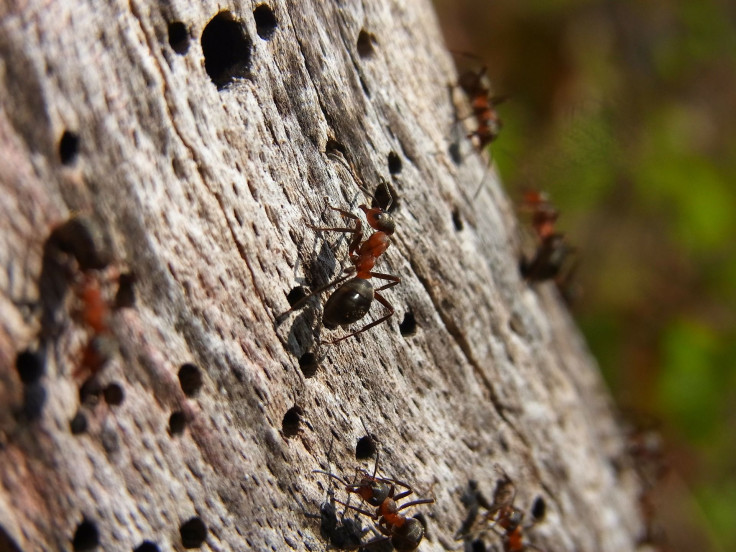MRSA Cure Latest 2017: Bacteria From African Insect Fights Deadly Infection's Antibiotic Resistance

Bacteria found to be living on a type of African insect might help humans fight off potentially deadly MRSA infections.
A study in Chemical Science says the new species of bacteria, Streptomyces formicae, “makes a family of rare … antibiotics” that stop methicillin-resistant Staphylococcus auereus from growing, representing a potential cure for the infection that often afflicts hospital patients who are already weakened and thus more susceptible to illness. The researchers, from the University of East Anglia in Norwich, England, are calling the antibiotic molecules “formicamycins,” and suggest they could be improved to serve as treatment for MRSA and other drug-resistant infections.
Read: How Your Body Fights off a Fungus
The potentially lifesaving bacteria was discovered on an ant species that is found on plants in Kenya. One of the researchers, the university’s Matt Hutchings, explained in a statement from his institution that on the plants, thorny acacia trees, the ants grow fungus for food and in exchange for the shelter deter animals from eating the plants.

“Searching under-explored environments combined with new advances in genome sequencing and editing enables the discovery of new species making natural products with potent anti-infective activity that could bypass resistance and form the basis of new anti-infective therapies,” the study says. “Most of the antibiotics in clinical use are derived from the natural products of soil microbes.”
The Kenyan bacteria is not the only recent advancement in the fight against MRSA. Researchers from Emory University recently identified the berries on an invasive plant species known as the Brazilian peppertree, which is native to the Amazon but is also found in Florida and other areas in the southern U.S. An extract from the fruit was found to block a gene in the MRSA bacteria that is involved in communication, preventing the bacteria from taking collective actions and giving the infected body a better fighting chance.
Scientists across the world are looking for new and powerful ways to fight off bacteria that are resistant to our current medicines. At least 23,000 people die of drug-resistant bacterial infections every year in the United States alone, according to numbers from the Centers for Disease Control and Prevention. Millions are infected annually.
Source: Hutchings MI, Qin Z, Munnoch JT, et al. Formicamycins, antibacterial polyketides produced by Streptomyces formicae isolated from African Tetraponera plantants. Chemical Science. 2017.
See also:
Published by Medicaldaily.com



























